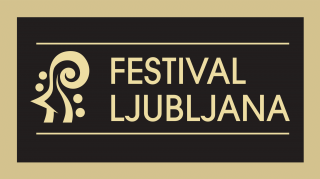The programme of the 72nd Ljubljana Festival also includes a concert by the Seognam Philharmonic Orchestra, which will take us through the stories of Korean culture and classical European melodies. We have prepared an interview with the conductor Nanse Gum, which you can read below:
1. You have already appeared four times at the Ljubljana Festival, most recently in 2019. Could you share something with us about your previous concerts here or your impressions of the Festival? What can we expect from this year’s performance?
It is always a great pleasure to perform at the Ljubljana Festival. Most recently, I came to Ljubljana Festival with Seongnam Philharmonic Orchestra in 2019 and orchestra members and I have very fond memories about the festival and also the warm audience of Ljubljana. We are all very looking forward to performing again at the festival this year.
2. You have founded several orchestras. What, in your view, are the advantages of founding a new ensemble as opposed to working with or leading one that has a decades- or even centuries-long tradition behind it?
Currently, I am the artistic director of two different orchestras, one is Seongnam Philharmonic Orchestra which is funded by the city of Seongnam and the other is New World Philharmonic Orchestra which is a venture-like, independent orchestra founded by myself more than 20 years ago. From the management perspective, the two orchestras are fundamentally very different. Of course every orchestra needs financial support of some sort but in a bigger perspective, I believe that classical music should also actively create newer and younger audiences too. In short, classical music should matter to more people. That is why I started doing highly successful Young People’s Concert Series more than 30 years ago in Korea and I have always tried to take a more creative approach when programming for the concerts and also when inviting support from business side as well.
3. You are also the artistic director of several music festivals. What is it that attracts you to this role?
I have been directing many festivals especially chamber music festivals in Korea and also in other countries like US and Japan. In the past, as recent as about 20 years ago, chamber music was not a very popular genre in Korea and not many people had interest nor knew how to enjoy it. I wanted to change that because I believe classical music comes from chamber music. I founded and directed Music Isle Festival in Jeju for 12 years and Manhattan Chamber Music Festival for 5 years. Nowadays chamber music has gained a lot more interest and I feel that the audience base has also grown more significantly in Korea. In April 2021, a new concert hall under my own name dedicated to the chamber music called Gum Nanse Music Center (GMC) has inaugurated in Busan, Korea. During the three years since the inauguration, we’ve done more than 150 chamber music concerts, including a 9-day summer music festival and a mini chamber music festival in autumn.
4. At your concert we will also have the opportunity to hear a contemporary piece written for the traditional Korean instrument the haegeum. Can you tell us a little more about this instrument and why you decided to include a composition for it in the programme? What place does this instrument occupy in contemporary Korean music?
Haegeum is a beloved traditional Korean string instrument and I wanted to include a traditional Korean piece for the audience of Ljubljana Festival. I’m sure most of the audience have not heard the sound of Haegeum and I’m excited to introduce the charm of Korean traditional instrument through a contemporary piece to the western audience.
5. You once told the Korea Herald that you would like to be remembered as a conductor of the people. What did you mean by that?
The classical music scene is very different in Korea when compared to let’s say, in Europe. From the very early stage of my career I realized that to be more successful in what I’m doing, I need to approach Korean audience and its market differently. Usually the conductors do not speak or explain about the pieces during the concert. I wanted to be like a ’translator’ of classical music to the Korean audience and that’s why I started my own style of concerts which takes more interactive approach with the audience, by explaning the piece to the audience. It proved to be a very successful and I’m still conducting and directing more than 100 concerts every year.

